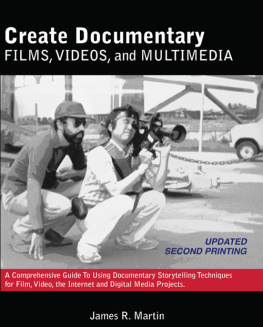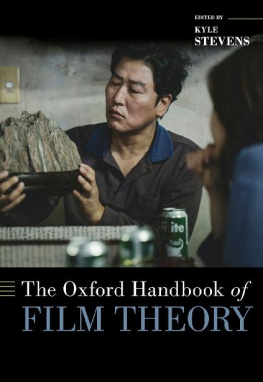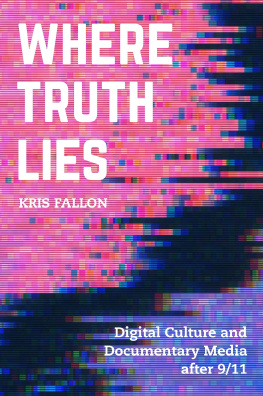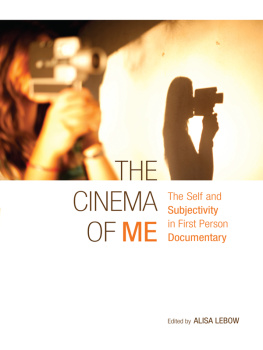Documentarys Awkward Turn
Despite the prominence of awkwardness as cultural buzzword and descriptor of a subgenre of contemporary film and television comedy, it has yet to be adequately theorized in academic film and media studies. Documentarys Awkward Turn contributes a new critical paradigm to the field by presenting an analysis of awkward moments in documentary film and other reality-based media formats. It examines difficult and disrupted encounters between social actors on the screen, between filmmaker and subject, and between film and spectator. These encounters are, of course, often interconnected. Awkward moments occur when an established mode of representation or reception is unexpectedly challenged, stalled, or altered: when an interviewee suddenly confronts the interviewer, when a subject who had been comfortable on camera begins to feel trapped in the frame, when a film perceived as a documentary turns out to be a parodic mockumentary. This book makes visible the ways in which awkwardness connects and subtends a range of transformative textual strategies, political and ethical problematics, and modalities of spectatorship in documentary film and media from the 1970s to the present.
This book brilliantly analyzes the formal techniques, affective qualities, and ethical implications of the comedic turn in documentary film and reality television that was instigated by the work of Christopher Guest and Michael Moore and has culminated in prank films and reaction videos. Jason Middleton presents a sophisticated and readable rumination on a serious subject, drawing upon theoretical discourses of comedy, spectatorship, and shame to argue that intentional and unintentional awkward moments define the temporal and emotional lacunae of the post-Fordist workplace depicted in The Office; destabilize documentary authority itself in films by Sacha Baron Cohen and the Yes Men; and promote ethical detachment in de-realized images proffered by reaction videos. Maria Pramaggiore, North Carolina State University, USA
While there have been many studies that theorize the idea of the spectator with relation to class, race, and/or gender, awkward humor has never really been examined with such a precise focus as it in this book. It will make a unique and lasting contribution to spectatorship studies, and moves well beyond work already done in the field, in a style that is refreshingly free of jargon, and written in a direct, accessible manner. Wheeler Winston Dixon, University of Nebraska, Lincoln, USA
This book offers a brilliant plumb-line that cuts through, and links, unanticipated bodies of contemporary nonfiction media to the affective, ethical, political and funny claims they make about the world and for their audiences. Looking to a diverse and complex body of programming, including mockumentary, reality TV, social media, and television, Jason Middleton uses the most contemporary of tropesAwk-wardto reveal how and why we are forced to, or enjoy, looking away. The disrupted encounters he focuses upon, which induce shame, contempt, implication or insulation, tell us much about our contemporary spectatorial delight in a documentary unknowing that occurs through broken encounters fuelled by misrecognition, deception, displeasure, or the absence of an ethical response. Alexandra Juhasz, Pitzer College, USA
Jason Middleton is assistant professor in the English Department and the Graduate Program in Visual and Cultural Studies, and director of the Program in Film and Media Studies, at the University of Rochester, USA. He is coeditor of the book Medium Cool: Music Videos from Soundies to Cell-phones (2007).
Routledge Research in Cultural and Media Studies
| 27 | Violence, Visual Culture, and the Black Male Body
Cassandra Jackson |
| 28 | Cognitive Poetics and Cultural Memory
Russian Literary Mnemonics
Mikhail Gronas |
| 29 | Landscapes of Holocaust Postmemory
Brett Ashley Kaplan |
| 30 | Emotion, Genre, and Justice in Film and Television
E. Deidre Pribram |
| 31 | Audiobooks, Literature, and Sound Studies
Matthew Rubery |
| 32 | The Adaptation Industry
The Cultural Economy of Literary Adaptation
Simone Murray |
| 33 | Branding Post-Communist Nations
Marketizing National Identities in the New Europe
Edited by Nadia Kaneva |
| 34 | Science Fiction Film, Television, and Adaptation
Across the Screens
Edited by J. P. Telotte and Gerald Duchovnay |
| 35 | Art Platforms and Cultural Production on the Internet
Olga Goriunova |
| 36 | Queer Representation, Visibility, and Race in American Film and Television
Melanie E.S. Kohnen |
| 37 | Artificial Culture
Identity, Technology, and Bodies
Tama Leaver |
| 38 | Global Perspectives on Tarzan
From King of the Jungle to International Icon
Edited by Annette Wannamaker and Michelle Ann Abate |
| 39 | Studying Mobile Media
Cultural Technologies, Mobile Communication, and the iPhone
Edited by Larissa Hjorth, Jean Burgess, and Ingrid Richardson |
| 40 | Sport Beyond Television
The Internet, Digital Media and the Rise of Networked Media Sport
Brett Hutchins and David Rowe |
| 41 | Cultural Technologies
The Shaping of Culture in Media and Society
Edited by Gran Bolin |
| 42 | Violence and the Pornographic Imaginary
The Politics of Sex, Gender, and Aggression in Hardcore Pornography
Natalie Purcell |
| 43 | Ambiguities of Activism
Alter-Globalism and the Imperatives of Speed
Ingrid M. Hoofd |
| 44 | Generation X Goes Global
Mapping a Youth Culture in Motion
Christine Henseler |
| 45 | Forensic Science in Contemporary American Popular Culture
Gender, Crime, and Science
Lindsay Steenberg |
| 46 | Moral Panics, Social Fears, and the Media
Historical Perspectives
Edited by Sin Nicholas and Tom OMalley |
| 47 | De-convergence in Global Media Industries
Dal Yong Jin |
| 48 | Performing Memory in Art and Popular Culture
Edited by Liedeke Plate and Anneke Smelik |
| 49 | Reading Beyond the Book
The Social Practices of Contemporary Literary Culture
Danielle Fuller and DeNel Rehberg Sedo |
| 50 | A Social History of Contemporary Democratic Media
Jesse Drew |
| 51 | Digital Media Sport
Technology, Power and Culture in the Network Society
Edited by Brett Hutchins and David Rowe |
| 52 | Barthes Mythologies Today
Readings of Contemporary Culture
Edited by Pete Bennett and Julian McDougall |
| 53 | Beauty, Violence, Representation
Edited by Lisa A. Dickson and Maryna Romanets |
| 54 | Public Media Management for the Twenty-First Century
Creativity, Innovation, and Interaction
Edited by Micha Gowacki and Lizzie Jackson |
| 55 | Transnational Horror Across Visual Media |











